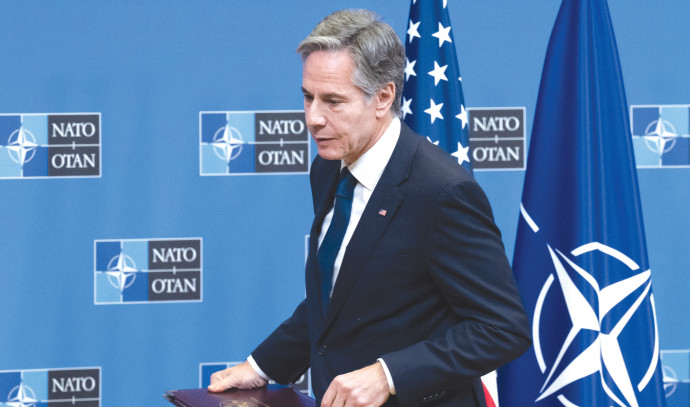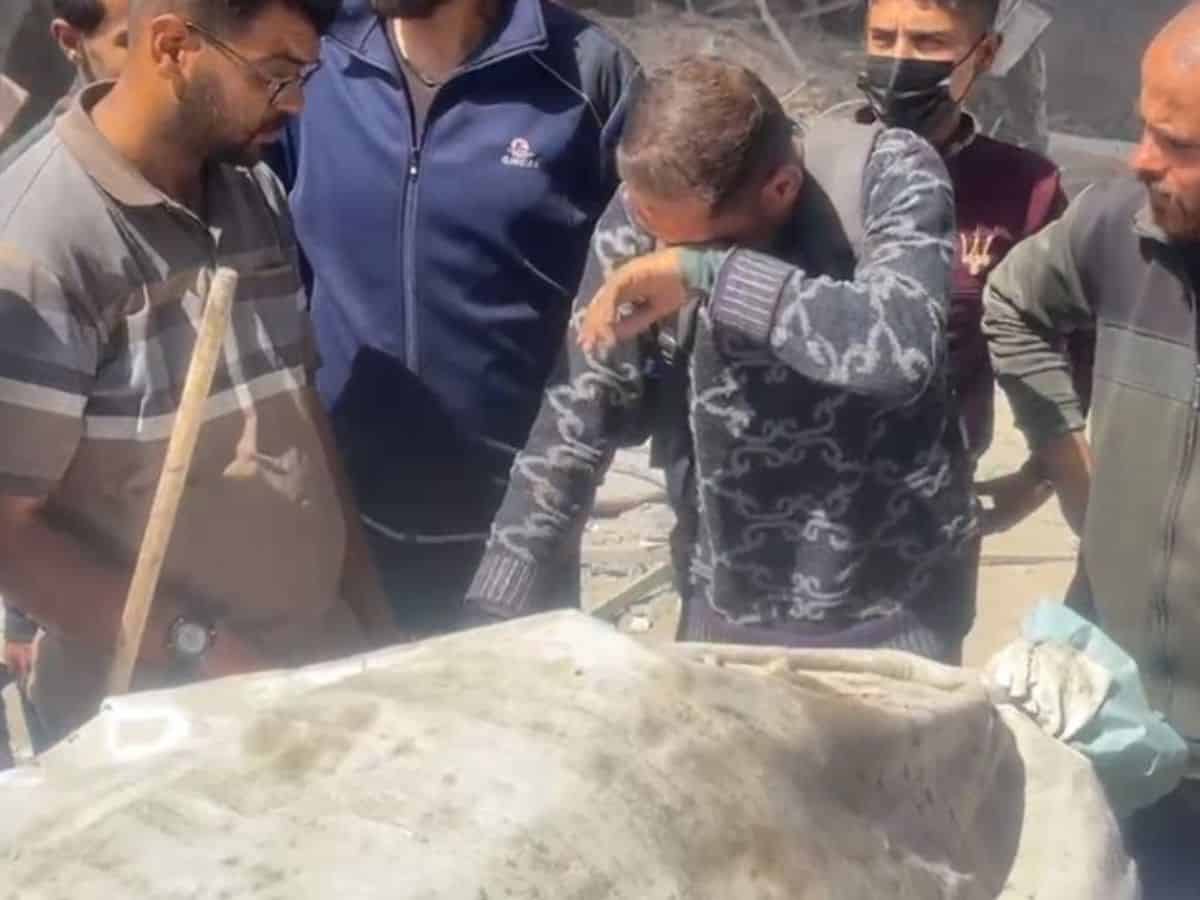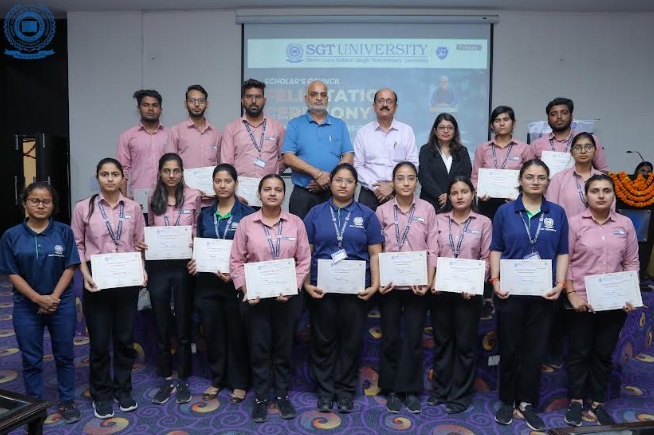CHICAGO — The recent ruling in Alabama that frozen embryos are legally considered children created a political firestorm after the decision halted treatment for many couples seeking to have families through fertility treatments. It also has turned the spotlight on the importance of institutions that are poised to play a central in this year’s elections: state supreme courts.
Decisions by states’ highest courts have become especially critical in the nearly two years since the U.S. Supreme Court overturned a constitutional right to abortion. This year, campaigns for state supreme court seats are expected to be among the most expensive and bitterly contested races on the ballot. At stake are future decisions over abortion, other reproductive rights, gerrymandering, voting rights and other crucial issues.
“This is where the action is,” said Jessie Hill, a law professor at Case Western Reserve University School of Law in Cleveland.
The ruling on Feb. 16 by the Republican-majority Alabama Supreme Court to consider frozen embryos created through IVF to be children under state law has unexpectedly made in vitro fertilization, or IVF, an emerging issue in campaigns up and down the ballot. With multiple providers pausing fertility treatments in the state, fearing criminal charges or punitive damages, the GOP-controlled Legislature is under pressure to come up with a fix.
After the U.S. Supreme Court overturned Roe v. Wade in 2022, eliminating federal protections for abortion rights, the decision unleashed a flurry of activity in the states, from legislation to lawsuits that often have ended up before state supreme courts. Those cases have magnified the stakes of having liberals or conservatives controlling a majority on those courts.
“Many people may not have realized that state supreme courts can decide on these kinds of issues that have such a direct impact on their everyday lives,” Hill said. “But this Alabama ruling is a reminder that these courts hold so much power, especially now, over people’s rights.”
This year’s elections bring 80 races for supreme court seats in 33 states, including a few such as Michigan, Ohio and West Virginia where partisan control is on the line. At least four states will have state supreme court races on Super Tuesday, including Alabama, Arkansas, North Carolina and Texas. Others, including Idaho, Illinois, Kentucky, Ohio, Oregon and West Virginia will have contests through the spring.
In Alabama, five of the nine seats on the all-Republican Supreme Court are on the ballot. Chief Justice Tom Parker, 72, who cited verses from the Bible and Christian theologians in his concurring opinion in the IVF case, is unable to seek another term because the Mississippi Constitution does not allow judges older than 70 to be elected.
Since Roe fell in the Dobbs v. Jackson Women’s Health Organization decision, about 40 lawsuits challenging abortion bans have been filed in 23 states, and many have worked their up to to states’ highest courts as advocates search state constitutions for protections to abortion rights.
According to the Center for Reproductive Rights, 30 state supreme courts have decided cases challenging abortion restrictions under their state constitutions. Of these, 12 have recognized protections for abortion rights in state constitutions, while four have denied their state constitutions protect abortion rights. Other state high courts have either upheld or blocked abortion restrictions without explicitly deciding on whether their state constitutions protect abortion rights.
These rulings have had direct consequences for those trying to access abortion care. In December, the Texas Supreme Court overturned a court order that would have allowed a Dallas woman to get an abortion after her story of being forced to leave the state to terminate her nonviable pregnancy sparked a national outcry.
Abortion rights are just one recent example of the U.S. Supreme Court deferring to states on major issues, said Douglas Keith, senior counsel in the judiciary program at the Brennan Center for Justice, which tracks spending in judicial races. The U.S. Supreme Court also stepped back from ruling on issues such as partisan gerrymandering and voting rights, often making state supreme courts the final word on those issues.
“The Dobbs decision and others made clear that these courts would be the ones to decide these fundamental issues during a time where the U.S. Supreme Court was taking a step back from protecting certain rights,” Keith said.
State courts also are involved in the process of getting statewide citizen initiatives to the ballot, often deciding disputes over the technical requirements of petitions and the signature-gathering process. They will be play a pivotal role this year, as reproductive rights groups seek to place measures protecting abortion before voters in a number of states.
State supreme courts are expected to rule on such measures planned in Florida, Missouri and Nevada.
Florida’s Republican attorney general in January asked the state Supreme Court to keep a proposed abortion rights amendment off the ballot. In Missouri, an appeals court ruled in October that summaries written by Republican Secretary of State Jay Ashcroft, an abortion opponent who is running for governor, were politically partisan and misleading. The Missouri Supreme Court declined to hear Ashcroft’s appeal of the ruling.
A Nevada district court judge in January approved an abortion-rights ballot measure petition as eligible for signature-gathering, despite a legal challenge by anti-abortion groups. In November, the judge rejected an earlier petition that was much broader, including protections for prenatal care, postpartum care, vasectomies, tubal ligations, miscarriages and infertility. Nevadans for Reproductive Freedoms, the group behind the petition, appealed that rejection to the Nevada Supreme Court and is awaiting a ruling.
Activists also aim to place abortion rights on the ballot in Arizona, where Republican governors have appointed all seven of the Supreme Court justices.
“In many cases, state supreme courts have a lot of power to shut down direct democracy by preventing a question from getting on the ballot,” said Brian Fitzpatrick, a professor at Vanderbilt Law School.
Strategies that attempt to derail ballot initiatives are part of a blueprint created by anti-abortion groups in other states, including Ohio, where voters last year overwhelmingly decided to enshrine abortion rights in the state constitution.
Even with voter approval, the Ohio Supreme Court will be the “ultimate arbiter” of how to interpret the constitutional amendment and how it will affect existing abortion laws, said Hill, the Case Western law professor who served as a consultant to the Ohio campaign to enshrine abortion rights. This means the state’s Supreme Court races this year, starting with a March 19 primary, will be vital to abortion rights in the state, as well as other topics including gerrymandering, environmental protections and criminal justice, she said.
With three seats up for a vote and a current 4-3 Republican majority, Democrats have an opportunity to flip the majority of the court for the first time since 1986 while Republicans will try to expand their control.
The result of a heated race in Wisconsin last year already has had an impact, after that state’s Supreme Court flipped to a liberal majority for the first time in 15 years.
In December, the new Wisconsin Supreme Court overturned Republican-drawn legislative maps and ordered new district boundary lines to be drawn. Wisconsin is a swing state but also is one of the most heavily gerrymandered in the country, allowing Republicans to have outsized majorities in the Legislature. A lawsuit challenging Wisconsin’s abortion ban might also be headed to the state supreme court.
“There have been immediate consequences for redistricting that have fundamentally reshaped politics in Wisconsin,” said Kyle Kondik, managing editor of an elections and campaign newsletter published by the University of Virginia Center for Politics. “It goes to show just how important these races are.”
Stay up-to-date with Colorado Politics by signing up for our weekly newsletter, The Spot.







